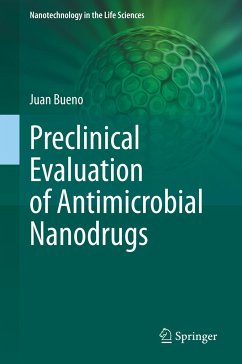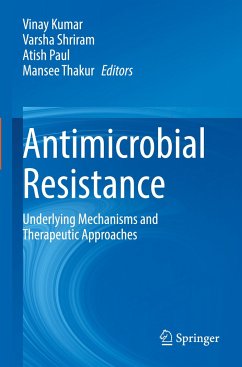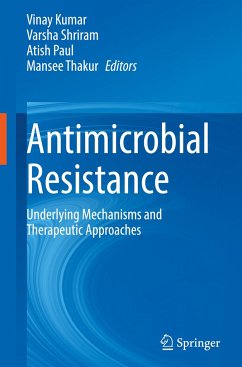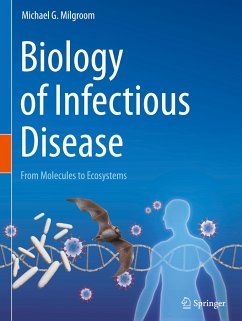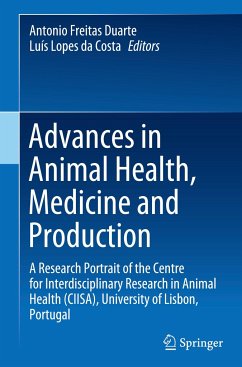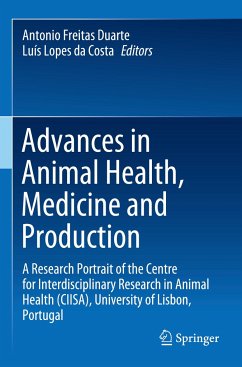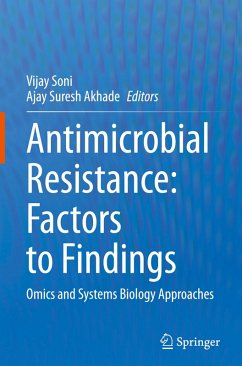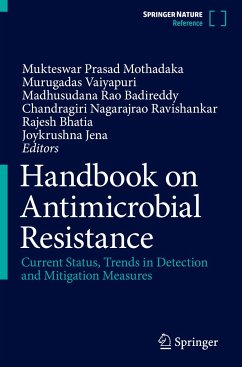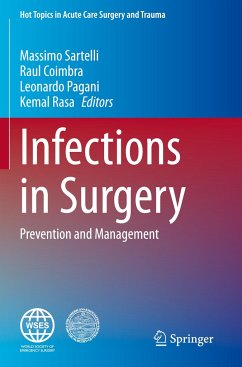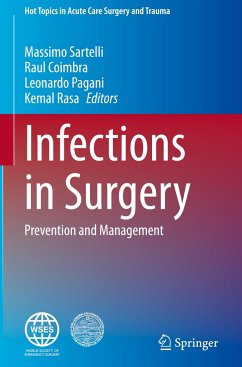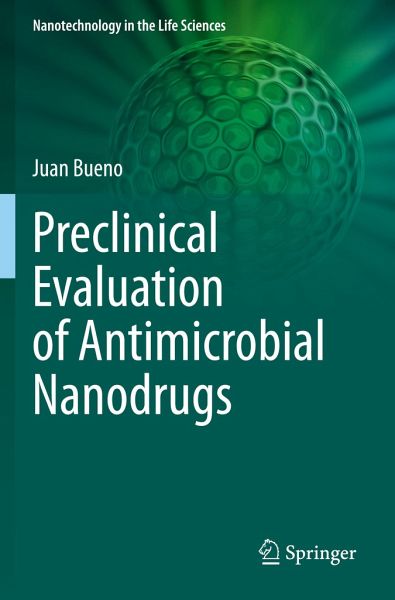
Preclinical Evaluation of Antimicrobial Nanodrugs
Versandkostenfrei!
Versandfertig in 6-10 Tagen
76,99 €
inkl. MwSt.
Weitere Ausgaben:

PAYBACK Punkte
38 °P sammeln!
Translational medicine addresses the gap between research and the clinical application of new discoveries. To efficiently deliver new drugs to care centers, a preclinical evaluation, both in vitro and in vivo, is required to ensure that the most active and least toxic compounds are selected as well as to predict clinical outcome.Antimicrobial nanomedicines have been shown to have higher specificity in their therapeutic targets and the ability to serve as adjuvants, increasing the effectiveness of pre-existing immune compounds. The design and development of new standardized protocols for evalua...
Translational medicine addresses the gap between research and the clinical application of new discoveries. To efficiently deliver new drugs to care centers, a preclinical evaluation, both in vitro and in vivo, is required to ensure that the most active and least toxic compounds are selected as well as to predict clinical outcome.
Antimicrobial nanomedicines have been shown to have higher specificity in their therapeutic targets and the ability to serve as adjuvants, increasing the effectiveness of pre-existing immune compounds. The design and development of new standardized protocols for evaluating antimicrobial nanomedicines is needed for both the industry and clinical laboratory. These protocols must aim to evaluate laboratory activity and present models of pharmacokinetic-pharmacodynamic and toxicokinetic behavior that predict absorption and distribution. Likewise, these protocols must follow a theranostics approach, be able to detect promising formulations, diagnose the infectious disease, and determine the correct treatment to implement a personalized therapeutic behavior. Given the possibilities that nanotechnology offers, not updating to new screening platforms is inadequate as it prevents the correct application of discoveries, increasing the effect of the valley of death between innovations and their use.
This book is structured to discuss the fundamentals taken into account for the design of robust, reproducible and automatable evaluation platforms. These vital platforms should enable the discovery of new medicines with which to face antimicrobial resistance (RAM), one of the great problems of our time.
Antimicrobial nanomedicines have been shown to have higher specificity in their therapeutic targets and the ability to serve as adjuvants, increasing the effectiveness of pre-existing immune compounds. The design and development of new standardized protocols for evaluating antimicrobial nanomedicines is needed for both the industry and clinical laboratory. These protocols must aim to evaluate laboratory activity and present models of pharmacokinetic-pharmacodynamic and toxicokinetic behavior that predict absorption and distribution. Likewise, these protocols must follow a theranostics approach, be able to detect promising formulations, diagnose the infectious disease, and determine the correct treatment to implement a personalized therapeutic behavior. Given the possibilities that nanotechnology offers, not updating to new screening platforms is inadequate as it prevents the correct application of discoveries, increasing the effect of the valley of death between innovations and their use.
This book is structured to discuss the fundamentals taken into account for the design of robust, reproducible and automatable evaluation platforms. These vital platforms should enable the discovery of new medicines with which to face antimicrobial resistance (RAM), one of the great problems of our time.





